Germany's economy is struggling, with lower projected growth for 2024 and a shortage of skilled workers being the main challenges, while policymakers disagree on the best course of action.

The Thai export sector has experienced a decline in competitiveness, with a significant drop in the market share of rice shipments over the past 20 years, posing obstacles to the country's economic growth and necessitating structural reforms.

The upcoming release of robust U.S. economic data raises questions about the ability of the economy to withstand the highest interest rates in over two decades.

Many Americans are not satisfied with federal taxes, wealth distribution, and the economy, according to a Gallup poll, despite President Biden's claims of economic success.

Argentina's economy contracted in December by the most since the peak of the Covid-19 pandemic, as President Javier Milei implemented shock austerity measures that led to a decline in consumption and pushed more people below the poverty line.
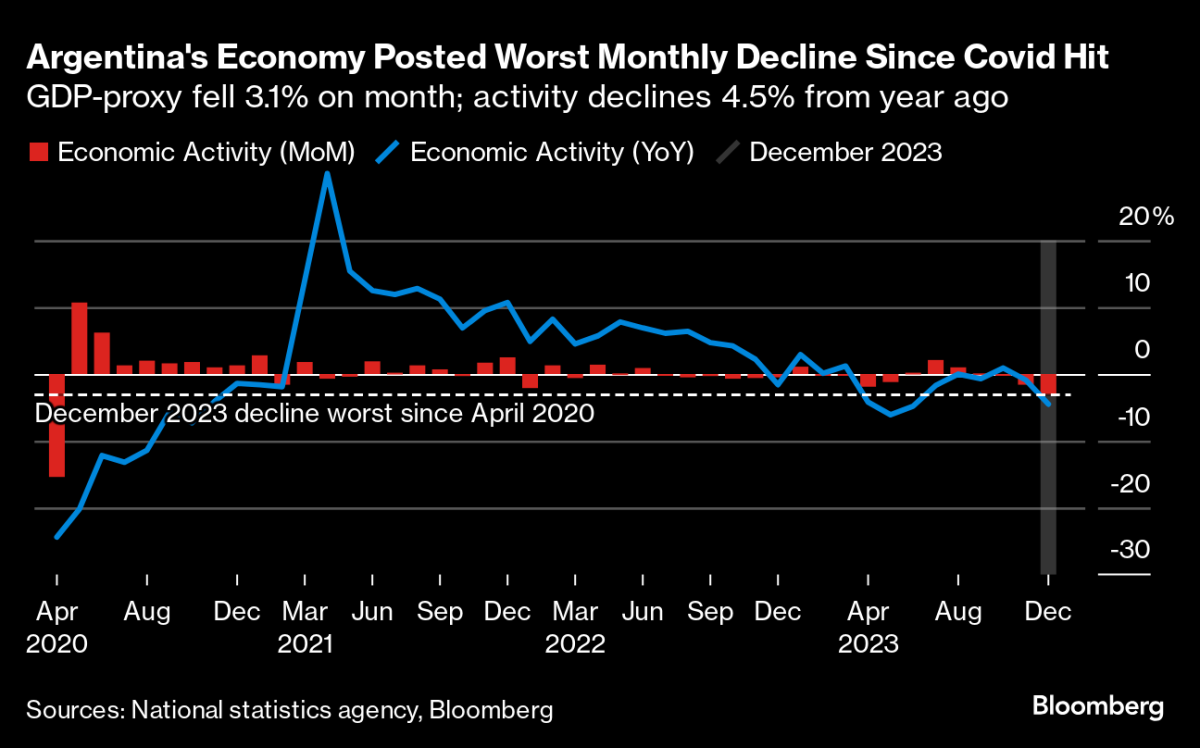
The average amount of money left by the tooth fairy for a lost tooth dropped to $5.84 in 2023, a 6% decrease compared to the previous year, possibly influenced by high inflation.

Nigeria's economy grew by 2.54% quarter-on-quarter, with the oil sector expanding 12.1% due to rising production, potentially allowing the country to meet its OPEC production quotas.

China's economy is facing numerous challenges, including distress in the property market, deflationary pressures, and significant volatility in the stock market, leading to a change in perception among investors and economists about China's economic health.

The upcoming release of U.S. economic data has raised questions about whether the strong economy can continue to withstand high interest rates, with economists predicting a 3.3% GDP growth rate for the final quarter of 2023 and an increase in the core PCE price index for January, potentially leading to a "bumpy path" of inflation and putting pressure on earnings for stocks and longer-term yields for bonds.

Despite concerns of a potential recession and whispers of rate hikes, the likelihood of a recession in the US has significantly diminished as the GDP remains above trend, the labor market remains robust, and the stock market continues to hit record highs, although there is still work to be done to control inflation and achieve a coveted Goldilocks scenario.
Pakistan is seeking a new loan of at least $6 billion from the International Monetary Fund (IMF) in order to repay its debt, and will negotiate an Extended Fund Facility with the IMF in March or April.

Savers are advised to take advantage of high-yield savings and certificates of deposit (CD) accounts before potential rate reductions later in 2024 by shopping around for lenders, understanding their options, and getting started promptly.

Americans in the nation's biggest cities are struggling with financial distress, with Chicago having the most significant increase in financially distressed accounts and Houston and New York City also ranking high in financial distress.

The article discusses the 25 fastest growing economies in the last 50 years, with countries such as Hong Kong, Qatar, and Thailand experiencing significant economic growth.

Zambia's kwacha has become the best-performing African currency against the US dollar this year, thanks to the central bank's tight monetary policy, but the sustained strengthening of the kwacha will depend on attracting more foreign investment.
By 2100, China is projected to have the highest GDP share of 22.68% and reach $101 trillion, followed by India, Indonesia, the United States, and Japan among the top five largest economies in the world.

Sales of previously owned homes in the US increased in January, with buyers taking advantage of lower mortgage rates and a slight increase in available properties, signaling an encouraging start for the housing market after two years of decline.

Germany's economy is struggling due to poor economic figures, lower growth forecasts for 2024, and disagreements among government officials on the best course of action, with issues such as a shortage of skilled workers and laborers, high energy costs, and excessive bureaucracy hindering progress.

China has one of the highest costs of raising a child, impacting the country's low fertility rate, as women face difficulties balancing work and family, resulting in a collapse in the birth population and a demographic crisis.

Block Inc, led by Jack Dorsey, plans to cut 112 jobs as part of its efforts to reduce costs, following a trend of job cuts in the tech industry due to high-interest rates and a shaky economy.

Jack Dorsey-led Block Inc plans to cut 112 jobs on March 30 as part of its cost-cutting efforts, following in the footsteps of other tech giants who have also announced layoffs in recent months.
/cloudfront-us-east-2.images.arcpublishing.com/reuters/P6ZIJOHPOJPGDNRGSWCUGEROJQ.jpg)
The US economy showed above-average growth in February with a rise in manufacturing and new orders, while the services sector also signaled growth despite a slight dip, indicating steady expansion and the potential for improvement.

Credible Operations provides tools and information to help improve finances, offering current mortgage rates and advice on getting the best rate, including factors that determine mortgage rates and how to compare lenders.

Chinese investment in Latin America is shifting away from large infrastructure projects towards smaller, more strategic investments in sectors such as information technology and electric vehicles, as Beijing seeks faster returns and lower operating costs, according to a study by the Inter-American Dialogue. The report showed that while China invested an average of $14.2bn annually in Latin America between 2003 and 2022, investment fell to $6.4bn last year. Latin American governments' reluctance to cooperate on mega-projects following high-profile failures has forced China to adapt its investment strategy.
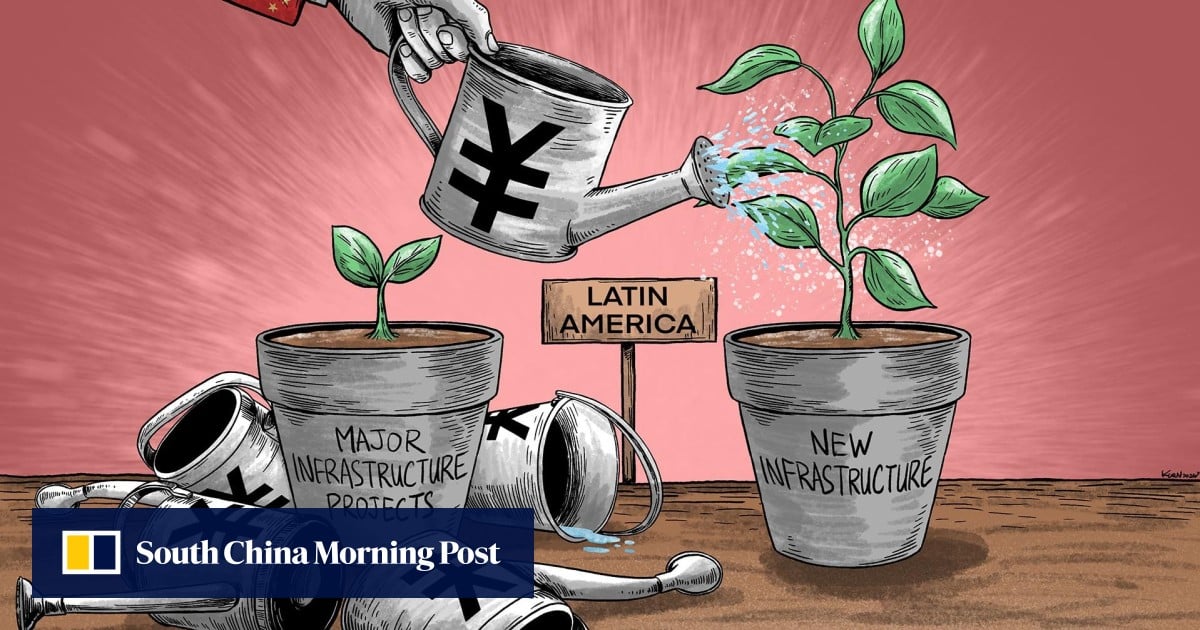
30% of Americans are spending $201-$300 of their monthly budget on utility bills, while 19% are spending $301-$500 on car payments alone, and rising costs, stagnant wages, lack of energy audits, and everyday lifestyle habits contribute to the high expenses.

Uganda's revenue from exports to the European Union now exceeds the revenue the EU earns from exporting goods to Uganda, marking a milestone in the country's trade relationship with Europe and highlighting the increased demand for Ugandan coffee.
Argentina's libertarian president, Javier Milei, should look to Peru for economic advice and stability, as Peru has maintained a stable currency despite political instability, which suggests that adopting the dollar as Argentina's currency may not be necessary.

Governments' slow permit approval process, resource nationalism, and inconsistent sustainability standards are hindering mining companies' investment in critical minerals needed for decarbonization.

The number of Americans who filed for unemployment benefits fell to a five-week low, indicating a strong labor market and suggesting that the economy will avoid recession until the Federal Reserve cuts interest rates later this year.

A new World Bank report reveals that a large proportion of youths and adults in Thailand have below-threshold levels of reading literacy, digital skills, and socio-emotional skills, posing a crisis for the country.

Americans are now spending 11.3% of their disposable income on food, the highest percentage in 30 years, according to the U.S. Labor Department, with prices at dining establishments and grocery stores continuing to rise.

Neel Kashkari, president of the Minneapolis Fed, has shifted from being a frequent dissenter to mostly agreeing with the rest of the rate-setting committee, citing mixed signals and uncertainties in the economy as reasons for not opposing their views, while also expressing the need for patience and more data before considering rate cuts.
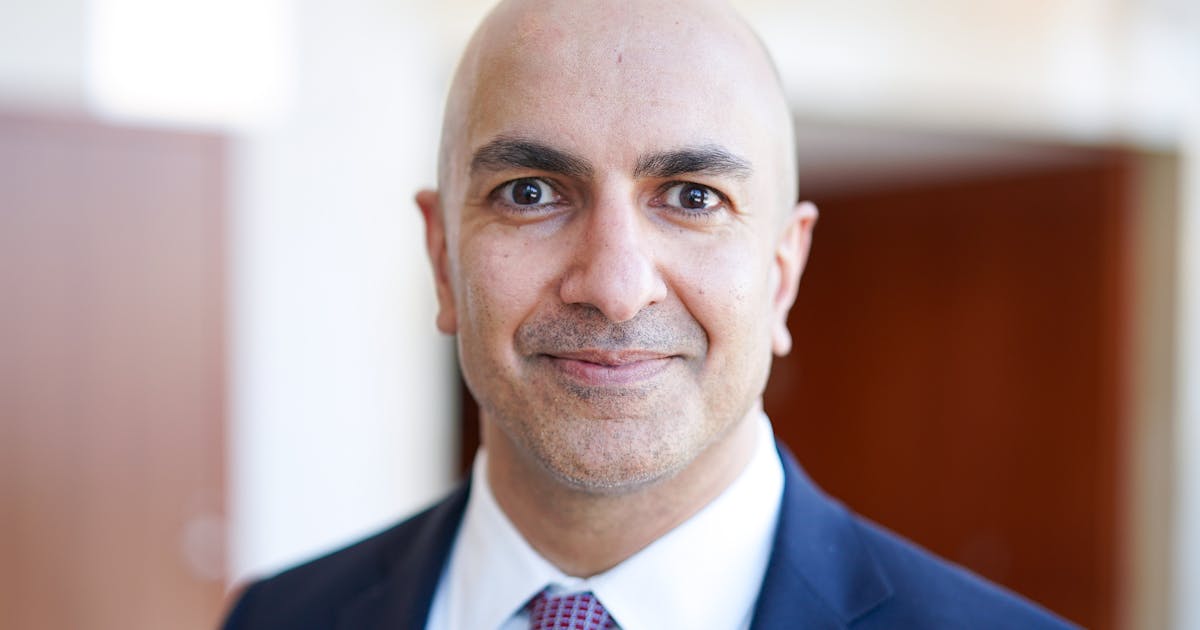
Nestle and Danone are reducing price increases on their branded food products in an effort to counter the impact of inflation and encourage customers to choose their products over cheaper private labels, which has caused Nestle's sales forecasts to disappoint investors. Both companies are aiming for moderate profitability growth in 2024.

China's infrastructure plans for economic growth may face obstacles as recent industrial indicators suggest a slowdown, with declines in excavator operation hours and overall equipment-operating time, leading to concerns about the reliance on infrastructure investment for growth and the limited private investment in hi-tech manufacturing and new strategic industries.
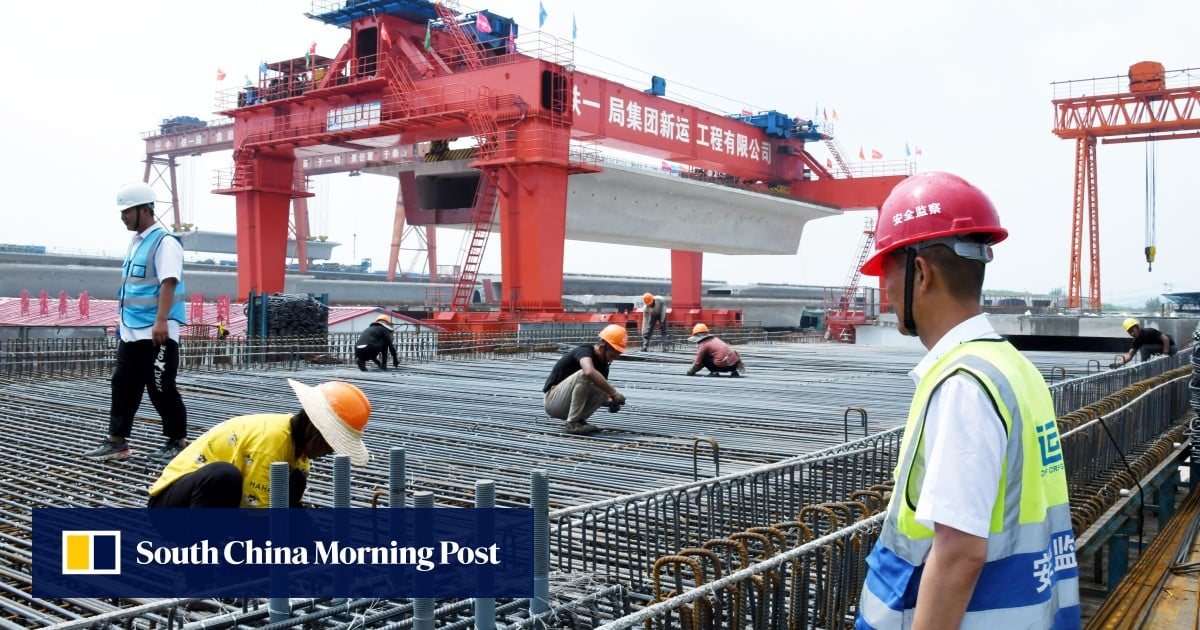
China should issue cash coupons to stimulate consumption and drive economic growth, following the examples of other countries such as the United States and Japan, according to economist Teng Tai. Teng argues that cash coupons are the most effective way to encourage spending, as they multiply the consumer's purchasing power. He suggests redirecting funds from inefficient infrastructure investment to disposable income. China's insufficient consumption is seen as a hurdle in the economic circle, and addressing this issue is crucial for sustained recovery. However, some analysts believe that focusing on the supply side to create jobs and incomes is a more sustainable approach.

The high cost of raising a child in China, particularly for women, is contributing to the country's low fertility rate and demographic crisis, according to a new report, with the cost of child-rearing 6.3 times higher than the country's GDP per capita.
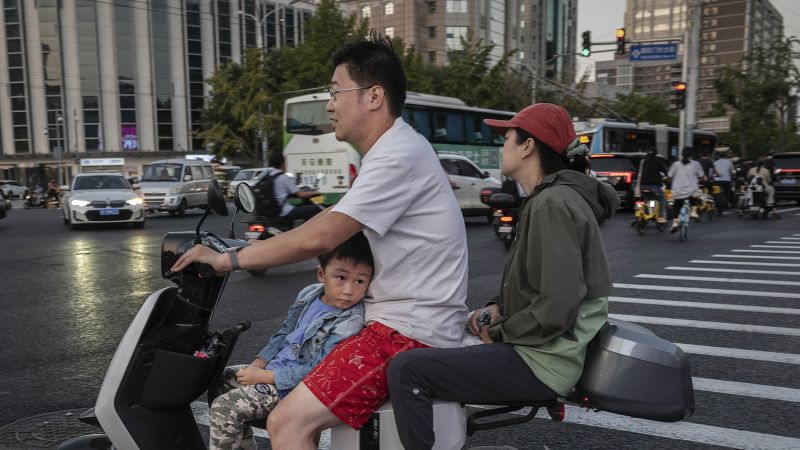
Record-large corn harvests and increased competition for U.S. grain exports have caused corn prices to plummet, leaving farmers regretting their decision to hold onto their crops instead of selling last summer when prices were high.

Consumer credit card debt in the US has reached $1.13 trillion, prompting many individuals to consider consolidating their debts through personal loans, which could be advantageous if interest rates decrease in the near future, benefiting companies like LendingClub.

The risk of a second wave of inflation remains high, particularly in the US, as core consumer prices rise and inflation expectations increase, causing bond yields to rebound.

The Central Bank of Nigeria has increased the exchange rate for cargo clearance in Nigerian ports, which will lead to higher prices for goods and potentially contribute to social unrest due to the country's high cost of living and economic challenges.

Japan's Nikkei 225 has finally reached a new record high, surpassing levels seen before the country's asset bubble burst in the 1990s, marking a significant recovery from Japan's "lost decades" of economic stagnation.

Australians earn an average of just under $2000 per week, with an annual increase of 4.5%, reflecting strong wage growth and the highest annual increase in underlying wage growth since 2009.

China plans to flood the West with its cheap electric vehicles (EVs) and solar panels, raising concerns among policymakers in Europe and the United States about potential trade tensions and the impact on Western industries. Chinese carmakers, such as BYD, have already captured a significant portion of the European EV market, offering vehicles at much lower prices than their Western counterparts. The fear is that China's overcapacity and subsidies will lead to dumping and undermine Western industries.
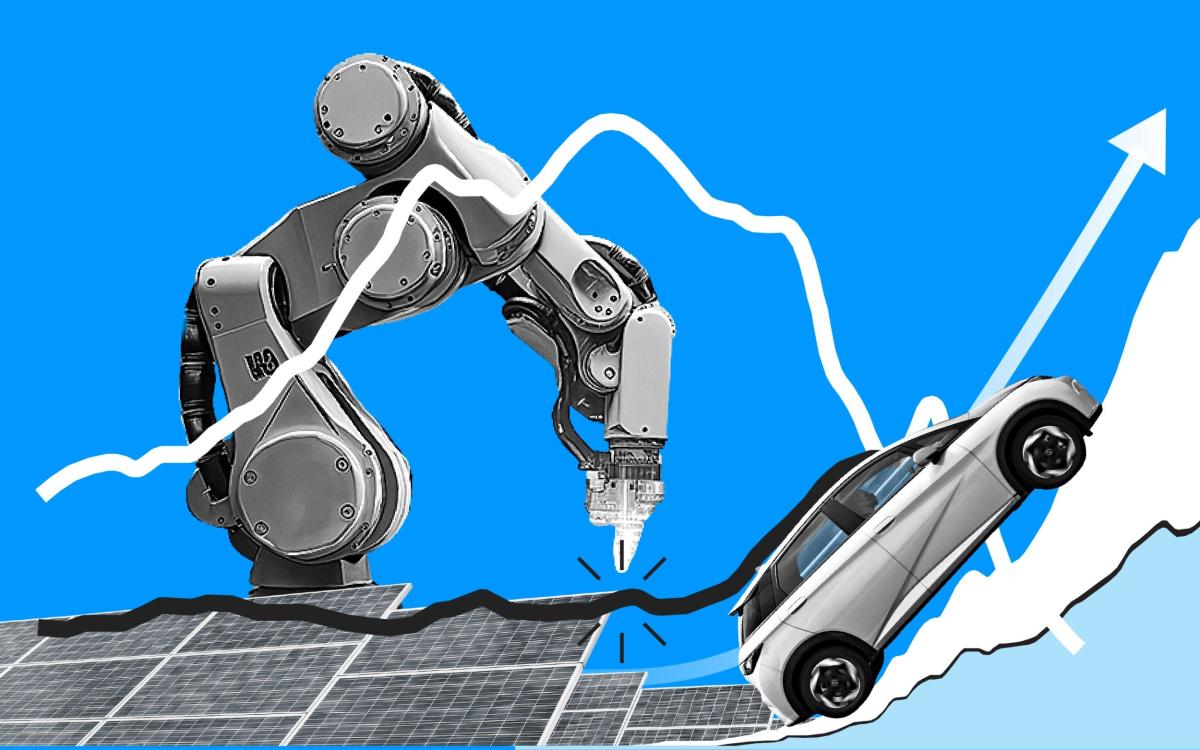
China ranks as one of the most unaffordable places in the world to raise a child, with child-raising costs surpassing those of the US, Japan, and the UK, according to a report from a Beijing think tank, which attributes China's low fertility rate to the high cost of raising children.
China has begun drafting a bill, known as the private economy promotion law, to address the challenges faced by the private sector and stimulate economic growth, though experts believe it may not bring significant innovation to China's business environment.
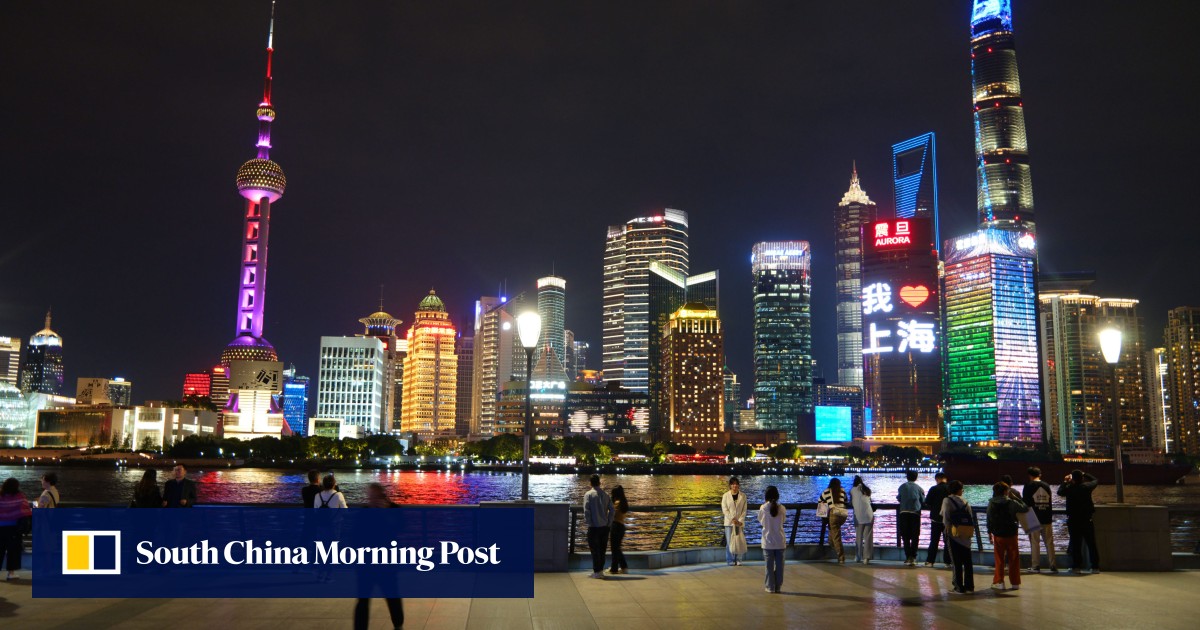
The percentage of US households carrying more credit-card debt than emergency savings is at its highest level since 2011, with many consumers using credit cards to cover increasing living expenses and necessities due to rising costs and slow income growth, leading to financial strain and elevated stress levels.

President Bola Tinubu's removal of fuel subsidy in Nigeria resulted in a significant reduction in monthly petrol imports, with a decrease of about 1 billion litres in August compared to the previous year.

The "cardboard-box indicator" suggests that the stock market may be heading towards a recovery as demand for cardboard boxes, which indicates manufacturing activity, is increasing.

Williamson County and City of Taylor leaders visited South Korea to attract various businesses, including support industries, to Samsung's Semiconductor plant in Taylor, resulting in promising leads and potential growth for the region.

Kevin Mahn, President and CIO of Hennion & Walsh, believes that Nvidia's earnings and the AI boom will continue to provide investment opportunities, although he thinks Nvidia's current valuation is excessive, and suggests that investing in sectors such as staples, industrials, healthcare, and information technology may be beneficial during an economic slowdown, along with considering fixed income options such as municipal bonds, corporate bonds, government bonds, and preferred stocks.